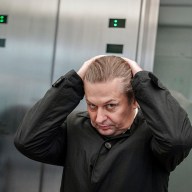New York City is the city that never sleeps.
But New Yorkers who stay up all night are supposed to be dancing in clubs or chatting in diners during the early morning hours – not lying awake in their beds, straining to sleep.
Sleep disorder specialists tell Metro that New York is a harsh place for people struggling to get some shuteye.
They estimate that hundreds, if not thousands, have problem sleeping, which can come with a variety of symptoms.
Every month, the Sleep Disorders Institute in Midtown sees 250 patients, according to a spokesperson.
People with sleep problems often take longer than 30 minutes to fall asleep and frequently awake or never feel rested. Often, they are unable to sleep past three or four hours a night, said Dr. Marlynn Wei, a psychiatrist who treats people with sleep issues.
And the glittering New York skyline can hamper sleep.
Things that make it harder to sleep – noise, light, using your home as your office – are much more common in the five boroughs.
According to a city spokesman, 311 has received 125,000 noise complaints so far this year. Many come from the Village area, stretching up toward Gramercy Park.
“Problems with sleep are very common, especially in New York, because of the environmental problems that are outside your control, like noise, not having enough space and also a lot of work and career and personal life stress,” Dr. Wei told Metro.
New Yorkers’ busy schedules don’t help.
“They go get to the gym, they pick up their kids, they don’t have time to eat and they eat before they go to bed — and that’s the worst thing you can do for your sleep,” said Dr. Steven Y. Park, a physician and sleep specialist.
How to get some zzz’s
Don’t drink or eat three hours before bedtime
Don’t drink coffee or tea in the afternoon
Turn off all electronics about an hour before you go to bed
Even lights on a turned-off VCR can trouble the brain – Dr. Park covers these with black electrical tape
Don’t work at night
Use a white-noise machine to reduce city noise
Try not to work in your bedroom – that makes you associate the bedroom with work and daytime, Wei said
Cover up the window to make sure no light gets through
Struggling to sleep
People with sleep problems often have these symptoms:
Takes longer than 30 minutes to get to sleep
Wake frequently throughout the night
Do not feel rested in the morning
Unable to sleep past three or four hours
Daytime fatigue
City soundtrack adds to insomnia
The city is so noisy that it even has its own noise code, updated in 2007 for the first time in 30 years. The Department of Environmental Protection and the NYPD both investigate noise complaints, which are typically directed to 311.
It’s harder to sleep in New York, where sound often tops typical conversation levels — estimated, for example, at about 65 decibels.
For example, Midtown Manhattan traffic noise can be 70 to 85 decibels, and a jackhammer can be up to 110 decibels or a stereo system 120 – dwarfing the normal conversation or laughter decibel.
The city tries to manage the noise, asking that construction projects have noise mitigation plans, like outfitting jackhammers with mufflers. Construction projects are also limited to between 7 a.m. and 6 p.m. on weekdays, according to the city.
Also, New Yorkers can call about animal noise that is “unreasonable and plainly audible” after 7 a.m. and before 10 p.m. and continuous for 10 minutes or more, or overnight, after 10 p.m. and before 7 a.m. for five minutes or more.
Lack of sleep creates health problems
“Sleep is one of, if not the most important elements to good health,” said Dr. Robert Meyers, a psychologist and sleep expert.
People without restful sleep have higher rates of depression, heart attacks, strokes and car accidents, added Dr. Park.
“People take for granted sleep in New York City, and that’s the first thing that get sacrificed,” Dr. Park said. “Sleep should be your most important appointment of the day.”
















